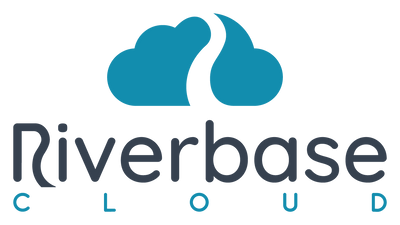Why Google Keywords Matter
To create successful ad campaigns, understanding google keywords is crucial. Here's why:
- Target Audience: The right keywords help reach the right customers.
- Better ROI: Optimize your ad spend by focusing on high-performing keywords.
- Increased Visibility: Improve your Google rankings and attract more traffic.
In this guide, we’ll help you master google keywords for better campaigns. You’ll learn how to use Google’s Keyword Planner, understand keyword mechanics, and find actionable strategies for keyword optimization. Whether you're new to Google Ads or looking to refine your approach, this guide will provide the tools to improve your online presence and drive sustainable growth.
I'm Gary Gilkison, an expert in campaign management and business development. With years of experience in leveraging google keywords, my goal is to make complex marketing strategies simple and effective for local service businesses.
Let's dive in.

Understanding Google Keywords
What are Google Keywords?
Google Keywords are the words or phrases people type into the Google search bar when looking for information, products, or services. These keywords are the foundation of your Google Ads campaigns. Think of them as the bridge connecting your business to potential customers.
For instance, if you own a bakery in Los Angeles, potential customers might search for "Los Angeles bakeries". This phrase becomes a keyword you can target in your ads. By using the right keywords, you can ensure that your ads appear in front of the right audience.
Google Keywords can be:
- Short phrases: Single words or short combinations like "bakery".
- Long-tail keywords: More specific phrases like "best gluten-free bakery in Los Angeles".
How Google Keywords Work
Google uses a complex algorithm to match your ads with relevant search terms. Here’s a simplified breakdown:
- Search Terms: When someone searches for something on Google, their query is called a search term.
- Keyword Matching: Google matches these search terms with the keywords in your ad campaign.
- Ad Eligibility: Your ad becomes eligible to appear based on the similarity between the search term and your keyword, as well as your keyword match types.
Keyword Planner
Google’s Keyword Planner is a free tool within Google Ads that helps you find new keywords. It provides data on search volumes, competition, and cost-per-click (CPC) estimates. This tool is essential for identifying the keywords that will drive the most traffic to your site.
Example: If you input "Los Angeles bakeries" into the Keyword Planner, it might suggest related keywords like "best bakeries in LA" or "artisan bread Los Angeles".
Keyword Match Types
Google Ads allows you to set different match types to control how closely a search term must match your keyword for your ad to appear. The main match types are:
- Exact Match: Your ad shows only when the search term exactly matches your keyword.
- Phrase Match: Your ad shows when the search term includes your keyword in the exact order.
- Broad Match: Your ad shows for any search term that includes your keyword, even in a different order or with additional words.
SEO Visibility
Using the right Google Keywords not only boosts your ad performance but also improves your SEO visibility. Keywords help search engines understand what your website is about, improving your chances of appearing in organic search results.
Example: By targeting keywords like "Los Angeles bakeries" in both your ads and website content, you increase your chances of appearing in searches for local bakeries, both through paid ads and organic results.
Google Network
Your keywords also determine where your ads appear within the Google Network, which includes Google Search, YouTube, and partner websites. By selecting high-quality, relevant keywords, you ensure your ads reach the most interested audience, maximizing your return on investment.
In summary, mastering Google Keywords is crucial for effective advertising and SEO. Understanding how to find and use the right keywords can significantly improve your online visibility and drive more traffic to your business.

How to Find and Choose the Right Google Keywords
Finding and choosing the right Google keywords is essential for effective advertising and SEO. Let's explore how to use the Google Keyword Planner and other keyword research tools to find the best keywords for your campaigns.
Using Google Keyword Planner
Google Keyword Planner is a free tool that helps you find new keywords related to your business. It provides estimates on the number of searches a keyword gets each month and the cost to target them. Here's how to get started:
- Access Keyword Planner: Make sure your Google Ads account uses Expert Mode. You won't be able to access Keyword Planner if your account is in Smart Mode.
- Complete Account Setup: Enter your billing information and create a campaign. If you're not ready to spend money, you can pause your campaigns.
- Create a Keyword Plan: Open Keyword Planner and choose between "Find new keywords" or "Get search volume and forecasts."
Find New Keywords
- Enter Keywords or Website:
- Start with keywords: Enter words related to your products or services.
- Start with a website: Enter a website URL, and Google will find keywords related to the content on that site.
- Get Results: Click "Get results" to see a list of keywords. You can filter and categorize these keywords to find the most relevant ones for your campaign.
Tip: Specifying both a keyword and a URL can yield a larger volume of keyword ideas.
Alternative Keyword Research Tools
While Google Keyword Planner is a powerful tool, there are other keyword research tools you can use to complement your efforts.
Keywordsheeter
Keywordsheeter scrapes Google's search bar to generate hundreds of potential keywords instantly. Here's how to use it:
- Enter Seed Keyword: Go to Keywordsheeter.com and type in your seed keyword.
- Collect Keywords: The tool will provide a list of potential keywords. You can copy these and use them in other tools like Google Keyword Planner.
YouTube Suggestions
YouTube is a goldmine for keyword ideas, especially if your content is video-focused. Simply start typing your keyword in the YouTube search bar, and you'll see suggestions based on popular searches.
Google Search Bar
The Google Search bar itself is a useful tool. Type your keyword, and Google will suggest related searches. These suggestions can give you insights into what people are searching for.
Example: If you type "how to bake a cake," Google might suggest "how to bake a cake without eggs" or "how to bake a cake in a microwave."
Combining Tools for Optimal Results
Using multiple tools can give you a comprehensive list of keywords. For instance, you can start with Keywordsheeter to generate a list of potential keywords, then refine this list using Google Keyword Planner to get search volumes and cost estimates.
Step-by-Step Example:
- Generate Keywords: Use Keywordsheeter to get a list of keywords.
- Refine Keywords: Paste these keywords into Google Keyword Planner to see search volumes and costs.
- Analyze Competition: Use tools like Ahrefs to check keyword difficulty and competition.
By leveraging these tools, you can find high-quality keywords that will help you reach your target audience effectively. Next, we'll dive into implementing these keywords in your campaigns to maximize performance.
Implementing Google Keywords in Your Campaigns
Setting Up Keyword Match Types
Choosing the right keyword match types is crucial for controlling which searches your ads appear in. There are three main types: exact match, phrase match, and broad match.
-
Exact Match: Your ad appears only when someone searches for your exact keyword or close variations. This gives you the most control but limits your reach. For example, if your keyword is [women's hiking boots], your ad will show for searches like "women's hiking boots" but not for "best women's hiking boots".
-
Phrase Match: Your ad appears for searches that include the exact phrase or close variations. This provides a balance between control and reach. Using the same example, "women's hiking boots" as a phrase match will trigger your ad for searches like "best women's hiking boots" or "buy women's hiking boots".
-
Broad Match: Your ad appears for searches that are related to your keyword. This offers the widest reach but the least control. For instance, "women's hiking boots" as a broad match might show your ad for searches like "outdoor gear for women" or "best hiking boots".
Pro Tip: Start with phrase match to balance control and reach. Then, refine with exact and broad match types based on performance data.
Optimizing Keyword Performance
Optimizing your keywords is key to improving ad position and overall performance. Here are some strategies:
-
Keyword Relevance: Ensure your keywords are closely related to your ad content and landing page. Google rewards relevance with better ad positions and lower costs. For example, if you're advertising "women's hiking boots," make sure your ad copy and landing page prominently feature this product.
-
Performance Monitoring: Use tools like Google Analytics to track metrics such as click-through rate (CTR), conversion rate, and cost per conversion. Regularly check the Search Terms Report in Google Ads to see which queries are triggering your ads. This helps you identify high-performing keywords and add negative keywords to filter out irrelevant traffic.
-
A/B Testing: Test different ad versions to see which performs best. Change one element at a time, like the headline or call-to-action, to isolate what works. For instance, you might test "Buy Women's Hiking Boots" against "Shop Top Women's Hiking Boots".
-
Quality Score: Google uses a Quality Score to rate the quality and relevance of your ads. A higher Quality Score can lead to lower costs and better ad positions. Focus on creating relevant ads and landing pages that match your keywords.
-
Bid Strategy: Choose a bid strategy that aligns with your goals. For more clicks, use a cost-per-click (CPC) strategy. For conversions, consider a cost-per-acquisition (CPA) strategy. Adjust your bids based on the performance of your keywords.
By focusing on these optimization strategies, you can improve your ad relevance, avoid higher prices, and achieve better performance.
Next, we'll explore advanced tips for mastering Google Keywords, including leveraging Google Trends and conducting competitor keyword analysis.
Advanced Tips for Mastering Google Keywords
Leveraging Google Trends
To stay ahead in the game, you need to know what people are searching for right now. Google Trends is your go-to tool for this. It shows you search interest over time for specific keywords, helping you identify trending topics and seasonal patterns.
How to Use Google Trends:
- Search Interest: Look at the past 24 hours or even the last few years to see how interest in certain keywords has changed.
- Trending Topics: Check out what’s trending globally or in specific regions. This can help you tap into current events or popular themes.
- Data Analysis: Use the data to refine your keyword list. If a keyword is gaining traction, it might be worth adding to your campaign.
Example: If you're in the fitness industry, you might notice a spike in searches for "home workouts" during the winter months. This insight allows you to tailor your content and ads to match this trend.
Competitor Keyword Analysis
Knowing what your competitors are doing can give you a competitive edge. Tools like Ahrefs and SEMrush can help you conduct a thorough market analysis and find keyword gaps.
Steps for Competitor Keyword Analysis:
- Identify Competitors: Use tools to find out who your main competitors are in the Google Ads space.
- Analyze Keywords: Look at the keywords they are ranking for and their impression share. This will give you an idea of their strategy.
- Find Gaps: Identify keywords your competitors are not targeting but are relevant to your business. These gaps can be a goldmine for new opportunities.
Example: If your competitor ranks high for "emergency roof repair," but you offer faster service, make sure to highlight this in your content using similar keywords.
SKAG and STAG
Single Keyword Ad Groups (SKAG) and Single Theme Ad Groups (STAG) are advanced strategies that can help you optimize your campaigns.
- SKAG: Each ad group contains only one keyword. This allows for very targeted ads and can improve your Quality Score.
- STAG: Groups keywords by theme rather than individual keywords. This is less granular than SKAG but still allows for targeted messaging.
Pros and Cons:
- SKAG: Highly targeted but can be time-consuming to manage.
- STAG: Easier to manage but less precise.
Keyword Optimization
Finally, continuous keyword optimization is crucial. Regularly review your Search Terms Report to see what’s working and what’s not. Add negative keywords to avoid wasting money on irrelevant searches.
Tips for Optimization:
- Performance Tracking: Monitor CTR, conversion rates, and Quality Score.
- Adjust Bids: Increase bids for high-performing keywords and decrease for low-performing ones.
- Refine Ad Copy: Ensure your ad copy matches the intent behind the keywords.
Example: If you notice that "affordable roofing services" is converting well, you might want to increase your bid on this keyword and create additional ads focused on affordability.
By leveraging Google Trends, conducting competitor analysis, and optimizing your keywords, you can master the art of Google Keywords and take your campaigns to the next level.
Next, we'll answer some frequently asked questions about Google Keywords to help you get even more out of your campaigns.
Frequently Asked Questions about Google Keywords
How do I find Google keywords?
Finding the right Google keywords is crucial for a successful campaign. Here's a step-by-step guide:
-
Google Ads Account: First, you need a Google Ads account. Make sure your account is in Expert Mode, not Smart Mode.
-
Keyword Planner: Steer to the Keyword Planner tool within your Google Ads account. This free tool helps you find new keywords and get search volume estimates.
-
Find New Keywords: Click on "Find new keywords." You can start by entering words related to your products or services, or even a website URL to generate keyword ideas.
-
Use Filters and Categories: Once you get the results, use filters and categories to narrow down the list to the most relevant keywords for your business.
-
Analyze Search Volume: Look at the monthly search volumes to understand how often these keywords are searched.
-
Determine Cost: Check the average cost-per-click (CPC) to gauge how competitive these keywords are.
Example: If you run a bakery in Los Angeles, you might start with keywords like "Los Angeles bakeries" or "best bakery in LA."
Is Google Keyword Planner actually free?
Yes, Google Keyword Planner is free to use, but there are some caveats:
-
Google Ads Account Requirement: You need to set up a Google Ads account and enter your billing information. You don't have to run active campaigns, but you must complete the setup.
-
Basic vs. Detailed Data: While the tool is free, the accuracy of the data improves if you are actively spending on Google Ads. Free accounts often see broader search volume ranges (e.g., "1k - 10k"), whereas spending accounts get more precise numbers.
Example: A non-spending account might show a keyword's search volume as "1k - 10k," but an active spending account could show it as "1,600."
How do I type keywords in Google search?
Typing keywords correctly in Google search can help you get more accurate results. Here are some tips:
-
Exact Match: Use quotes around a phrase to get results that include the exact words in that order. For example,
"best bakery in LA". -
Site-Specific Search: Use
site:followed by a domain to search within a specific website. For example,site:nytimes.com "best bakery in LA". -
Exclude Words: Use a minus sign
-to exclude certain words from your search. For example,best bakery in LA -donutsto exclude results about donuts.
By understanding these techniques, you can refine your searches and find the most relevant information quickly.
Next, we'll cover some advanced tips for mastering Google Keywords to further improve your campaigns.
Conclusion
In the busy digital landscape, standing out among the competition is no easy feat. That's where we at Riverbase Cloud come into play. Our dedication to excellence and deep understanding of SEO strategies position us as a leading partner in your journey towards digital prominence.
Guaranteeing top 10 Google rankings might seem like a bold promise, but it's one we confidently make. Our approach is backed by years of expertise, a profound grasp of SEO dynamics, and a commitment to our clients' success. We've seen how achieving a top-tier ranking can transform businesses, driving increased traffic, sales, and, ultimately, growth.
At Riverbase Cloud, we don't just aim for short-term wins; we're in it for the long haul. Our strategies are designed to adapt to the changing digital environment, ensuring your business remains at the forefront of your industry. Whether it's through meticulous keyword research, optimizing your Google Business Profile, or leveraging local directories and reviews, we employ a holistic approach to SEO that covers all bases.
But what truly sets us apart is our risk-free SEO with an best guarantee. We understand the hesitation that comes with investing in SEO services, which is why we offer a money-back guarantee if we don't achieve top 10 Google rankings. This commitment underscores our confidence in our ability to deliver results and the value we place on client satisfaction.
In the competitive Bay Area market, you need a partner who not only understands the local SEO landscape but is also committed to your business's success. Explore our Elite SEO services, and let's start on a journey to not just compete but to lead in the digital marketplace.
In local SEO, being seen is just the beginning. With Riverbase Cloud, you're not just visible; you're a top contender. Let's achieve greatness together.


